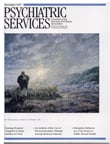Dr. Chester Pierce has been a dominant figure in mainstream American psychiatry for three decades, holding such posts as president of the American Board of Psychiatry and Neurology and president of the American Orthopsychiatric Association. He is also a founding chairman of the Black Psychiatrists of America and has inspired a younger generation of African-American psychiatrists. One of them is the author, Dr. Ezra Griffith, who is professor of psychiatry at Yale University.
Griffith, in this uniquely personal volume, seeks to learn Chet Pierce's secrets—what has allowed him to live his personal and professional lives so elegantly despite the oppressive influences of racism, on which he has elaborated perhaps more than any other African-American psychiatrist.
What makes this book so fascinating is that Griffith uses a brilliant device to conduct what he calls "an argumentative dialogue" with Pierce. He richly juxtaposes Pierce's biography and his own autobiography, which actually gives readers a kind of two-for-one bargain—an intimate examination of two African-American psychiatrists' lives and thinking.
Dr. Pierce grew up in a primarily white town on Long Island, New York, while Dr. Griffith grew up in the Barbados in the Caribbean. The contrast between the two is often startling. As Pierce's biographer, Griffith is always present in this work. He seems to have no hidden biases, and his personal honesty is refreshing.
Pierce, while an enthusiastic subject for Griffith, is not an easy study, and certain attitudes, like his disdain for money and clothing, perplex Griffith. Pierce's refusal to debate his views publicly and his refusal to argue differences of opinion with other African Americans also pique Griffith's curiosity, and he explores these subjects extensively.
More poignant, though, are the areas of concurrence, especially the central theme that matters of race permeate the lives of African Americans, even those as successful as these two men. Griffith skillfully discusses Pierce's application of research findings about the human response to extreme environments (at the South Pole) to the exigencies of black life in America. At least among African Americans, some of Pierce's terms and concepts—micro-aggression, micro-traumata, and racism as an environmental pollutant—are abiding.
This book represents a significant contribution for those interested in several general fields: male development; adult males' relationships with one another, especially mentor with student; and men's relationships with their families (Pierce's enduring relationship with his wife and daughters is interwoven throughout the book). The cross-cultural contrast between Pierce and Griffith alone makes this work compelling. Potential readers would deprive themselves by marginalizing this book to a "people-of-color" readership.
Griffith recognizes Pierce's retirement from Harvard University with considerable regret, given his subject's utter refusal to allow any public recognition of his long tenure. The closing of this book graphically reveals the ambiguity many African Americans experience even within institutions to which they have made major contributions and within which they have developed significant relationships; do they ever feel that they belong? Nonetheless, Pierce's quiet and humble exit is accepted by Griffith, who sees this departure as consistent with the way his subject has conducted his life.
Race and Excellence is a fine volume, and Ezra Griffith has done a masterful job of discussing Dr. Chester Pierce with what I'll term a critical respect, if not reverence. The biographer seems well along the way of learning and applying his subject's wisdom.

